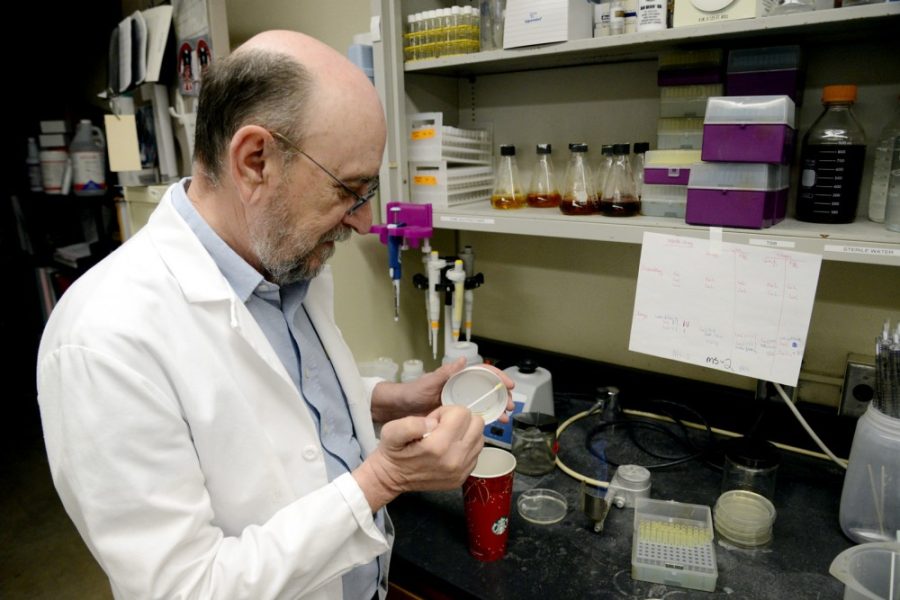Coffee lovers beware: Coffee cup lids can be home to a host of harmful viruses and fecal bacteria, according to a UA professor.
Charles Gerba, a professor of environmental microbiology in the Soil, Water and Environmental Science Department, studies how diseases spread among people and objects in indoor settings.
Gerba recently examined the bacteria on 40 coffee cup lids from various coffee shops.
Ten of the lids made up the control group, meaning they weren’t handled, while the other 30 were the experiment group. These 30 lids were handled by coffee shop owners and customers alike, accumulating bacteria that was then looked at in the lab.
Gerba found that the lids were contaminated with fecal bacteria through the presence of E. coli, which indicated that viruses could be present as well.
“It’s basically ‘catch a cold with your caffeine in the morning,’” Gerba said. “I don’t think most people expect it.”
Jonathan Sexton, a research specialist in community, environment and policy who has worked with Gerba in the past, said testing for E. coli is an easy way to show the presence of fecal bacteria, among other forms of bacteria.
“E. coli is a fecal indicator,” Sexton said. “It’s really easy to process in the lab, and it’s really cheap. Some of these other organisms cost hundreds of dollars just to look for it in the lab.”
Gerba said E. coli was just one of the indicators in his study. He also saw other bacteria present, like the Noro virus, which causes adult diarrhea. Bacteria like these can cause people who handle and who drink from these coffee lids to get not only diarrhea, but anything from a common cold to the flu, said Gerba.
Bacteria-infested objects like gloves and sponges are the most prominent danger sources, Gerba added. Sponges are used to clean counters and gloves are worn so that objects don’t make contact with employees’ hands directly. However, it’s worse when the harmful bacteria begin to grow in the sponges and on the gloves themselves, which employees and customers expect to be sanitary.
“People handle [the lids] when they give [the coffee] to you, so whatever’s on their hands they transfer onto the lids,” Gerba said. “Not everybody washes their hands, and they [bacteria] grow on the sponges and gloves.”
Erin Mullen, a pre-veterinary freshman, said she wasn’t too surprised to learn that there’s bacteria on coffee cup lids, because as an employee at Coldstone Creamery, she’s seen how many people handle to-go cups and lids. Learning that there are germs on the lids probably won’t keep her from drinking Starbucks, Mullen added.
“Everything has germs,” Mullen said. “I’m not a big germaphobe.”
Despite these unsettling findings, customers in the typical eatery are usually safe, Sexton said.
“The restaurants have to follow expectations,” Sexton said. “In the house, especially around food, people don’t always follow safety measures, whereas restaurants get inspected regularly.”
Gerba said people should only worry when something is being touched by multiple hands.
“The main thing is you’ve got different people handling your food,” Gerba said. “The whole idea is more people are touching things than ever before.”









